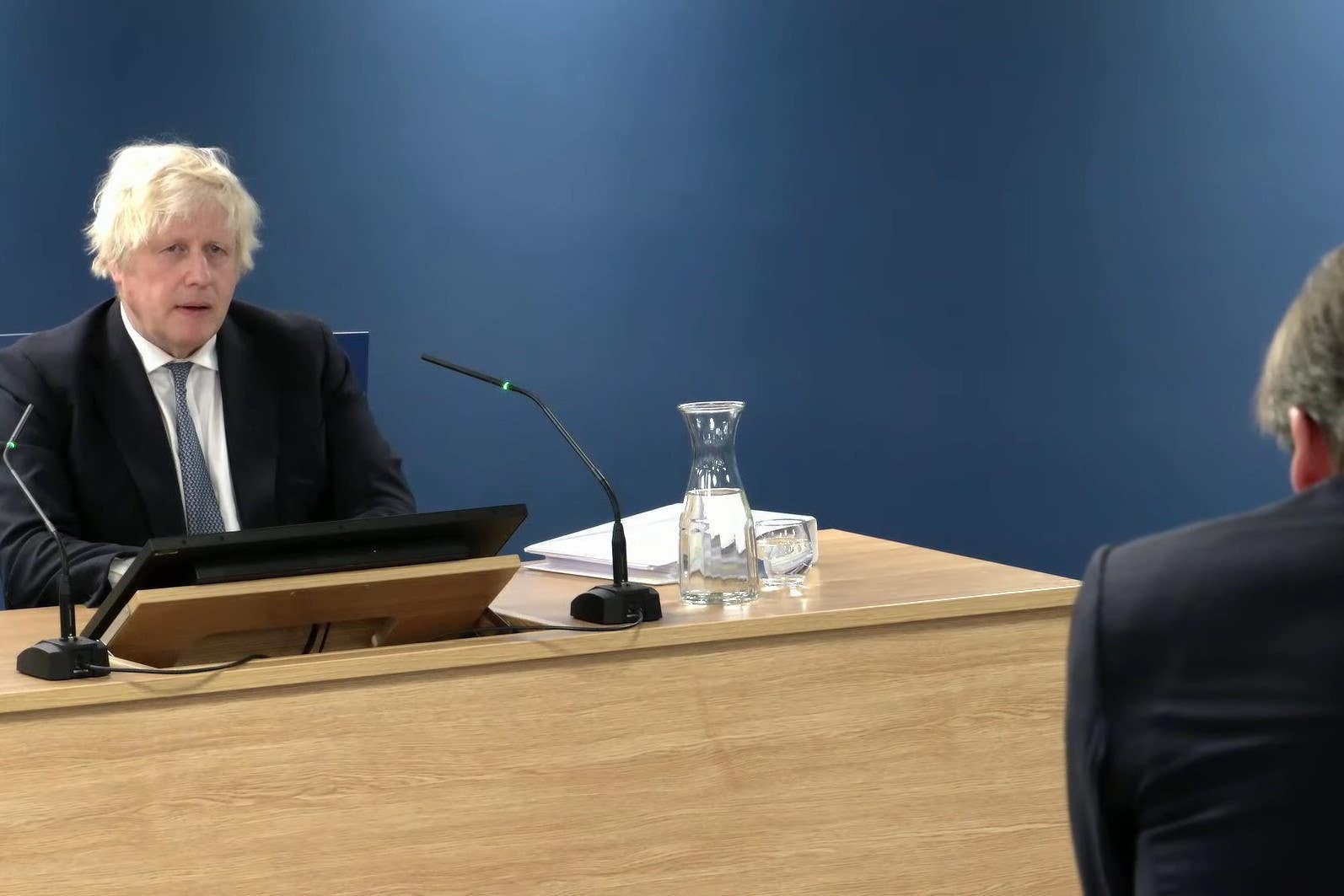Key points: Boris Johnson’s second day at Covid inquiry
The former prime minister was questioned by inquiry counsel Hugo Keith.

Former prime minister Boris Johnson’s second day of giving evidence to the UK Covid-19 Inquiry got under way on Thursday.
Here are the key points from the session so far:
– Partygate representation labelled “absolutely absurd”
Mr Johnson was pressed by inquiry counsel Hugo Keith on lockdown-breaching parties that were held in Downing Street. Dubbed “partygate”, the scandal eventually led to the former prime minister’s exit from high office in 2022. But Mr Johnson complained about how the scandal had been presented to the public, adding “the dramatic representations that we’re now having of this are absolutely absurd”.
– Emotions ran high as Mr Johnson rejected claims he did not care about suffering
Mr Johnson told the inquiry that claims he “didn’t care” about the “suffering that was being inflicted on the country” was the “complete opposite of the truth”. While being pressed on partygate, he admitted “we could have done more in Number 10 to insist that people thought about the way their behaviour would be perceived by others”.
– Former prime minister recalled time spent in intensive care with virus
An emotional Mr Johnson fought back tears as he recalled his time on an intensive care ward with Covid-19. He was hospitalised in April 2020. He told the inquiry: “When I went into intensive care, I saw around me a lot of people who were not actually elderly. In fact, they were middle-aged men and they were quite like me. And some of us were going to make it and some of us weren’t.”
– Mr Johnson “did not back ‘let it rip’ strategy”
Mr Johnson argued that he was not “reconciled” to Covid deaths or thought it wise to “let it rip” as cases rose in the autumn of 2020. The claims were made in diary entries by former chief scientific adviser Sir Patrick Vallance. But Mr Johnson firmly denied that the extracts represented a glimpse into a government that favoured no national lockdown “until the last possible moment” and instead backed a tiered system.
– Complexities of rules acknowledged
Mr Johnson told the inquiry he had “a great deal of sympathy” for police who had to enforce ever-changing rules and recalled “there were 60 separate changes (to the rules)”.
– Tier system was “worth a try”
Mr Johnson acknowledged that the tier system – introduced in the autumn of 2020 – did not work, but said it was “worth a try”. He told the inquiry that creating boundaries based on where cases were highest had caused “huge problems”.
– Confusion over claims from top scientists
Mr Johnson told the inquiry he was “perplexed” at claims from scientific advisers that they were not aware of the Eat Out To Help Out scheme before it was announced. The initiative – designed to kick-start the restaurant sector after the first lockdown in summer 2020 – has been scrutinised by the inquiry, but was not viewed as a “particular gamble at the time” by the former prime minister. He also said he was “not confident that there is substantial evidence” that Eat Out To Help Out led to a rise in cases.
– Common sense approach should be taken in future pandemics
The former prime minister suggested focusing more on common sense and less on regulation in any future pandemic. He added that there should be “a great deal of reflection about simplifying the whole approach”.
– Relationship between the Government and the devolved nations
Boris Johnson rejected the suggestion there was a “high-handed, incommunicative approach from Westminster” in the pandemic.
He insisted the UK Government had “excellent communications” with the devolved nations and said there was “no ill will whatsoever” between him and Nicola Sturgeon.
Bookmark popover
Removed from bookmarks